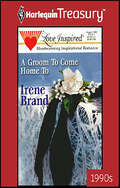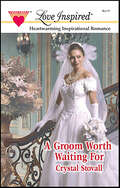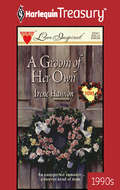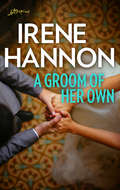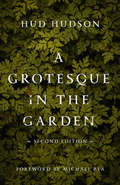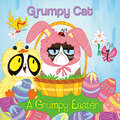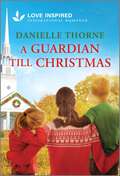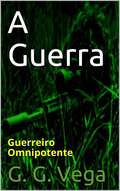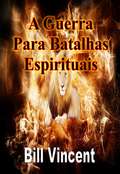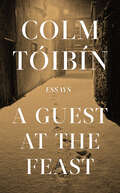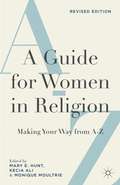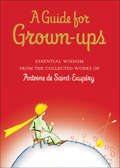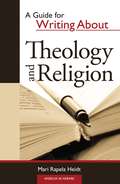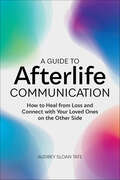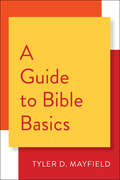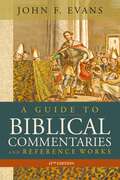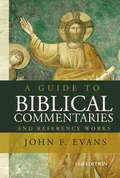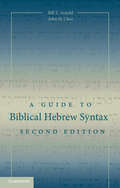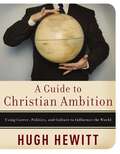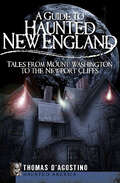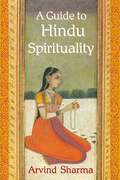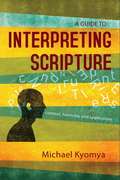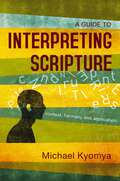- Table View
- List View
A Groom To Come Home To
by Irene BrandCOMING HOME...Beth Warner had pledged she'd never return to Harlan County. But when a twist of fate brought the beautiful nurse home, she faced reawakened memories-and the only man who had ever won her heart....Clark Randolph hadn't changed. Handsome, strong and kind, he was still all Beth had ever wanted. Secure in his faith, he'd never given up on their hometown. Deep in his heart, he'd never stopped loving Beth....Now Beth was again faced with the same dilemma that had torn her apart as a teenager. And as she struggled to understand heaven's plan in bringing her home again, she prayed that it was not too late to embrace a future filled with Clark's love.
A Groom Worth Waiting For
by Crystal StovallEVERYTHING HAPPENED FOR A REASON....Was there anything worse than going dateless to three family weddings? Matt Wynn didn't think so-until he stumbled upon an armed convenience-store robbery. Thanks to fervent prayers and quick thinking, he saved his own life, and a stranger's. Now she would do anything to repay him....Amy Jenkins believed the Lord had a plan for her-but heaven only knew what it was. The last place this jilted bride wanted to go was a wedding...let alone three! She never suspected that before the summer was over, a fourth wedding might loom for her and Matt: their own....
A Groom for Ruby and The Amish Witness: A Groom for Ruby\The Amish Witness
by Diane Burke Emma MillerTwo Amish stories of faith and loveA Groom for Ruby by Emma MillerArriving in Seven Poplars to find a husband, Ruby Plank stumbles into the arms of an eligible bachelor! To her amazement, Joseph Brenneman doesn’t care if Ruby is clumsy or outspoken. The shy mason thinks she’s wonderful. If only others felt the same! Joseph’s mother insists Ruby isn’t good enough. When Ruby’s family secret is revealed, it could divide the couple forever…unless pride gives way to love and trust.The Amish Witness by Diane BurkeAfter witnessing her best friend’s murder, Elizabeth Lapp flees to the Amish community she left years ago. But the killer follows Elizabeth, trapping her in a barn, until Thomas King saves her. The handsome Amish farmer she left behind vows to keep her safe. Suddenly, the man who’s not yet ready to forgive her is all that’s standing between her and a cold-blooded killer.
A Groom of Her Own
by Irene HannonGUESTS AT THE WEDDING Watching her best friend get married, lovely widow Samantha Reynolds wondered if she'd ever speak those solemn vows again. Though wary, part of her still longed for a husband and family. But it would take a very special man for Samantha to trust her heart once more... From the moment minister Brad Matthews saw Samantha at the wedding, he wanted to be the husband of her dreams. But Samantha had a devastating secret and, once revealed, Brad would face the greatest challenge of his faith: to forgive...and forge a future with this unforgettable woman.
A Groom of Her Own
by Irene HannonA WEDDING TO REMEMBERWatching her best friend get married, lovely widow Samantha Reynolds wonders if she’ll ever speak those beautiful vows again. Though wary, part of her still longs for a husband and family. But it will take a very special man for Samantha to trust her heart once more.... From the moment minister Brad Matthews sees Samantha at the wedding, he wants to be the husband of her dreams. But Samantha has a devastating secret and, once revealed, Brad will face the greatest challenge of his life—to find forgiveness...and to forge a future with this unforgettable womanOriginally published in 1998
A Grotesque in the Garden
by Hud HudsonAfter several millennia living as a lone sentinel in the Garden of Eden, the angel Tesque is contemplating leaving his post in rebellion against God. Meanwhile, in another time and place, a professor of mathematics isolates herself in remote Iceland as she finds herself increasingly at odds with society. The connection between these two characters? A letter, a sentient dog, and a deep-seated resistance to the demands of love. A Grotesque in the Garden is a philosophical tale that addresses some of theology&’s thorniest problems, including the questions of divinely permitted evil, divine hiddenness, and divine deception, couching them in narrative form for greater accessibility to students and general readers. While Hudson&’s story ultimately vindicates the virtue of obedience to God, it never shies away from critiques of troublesome theological positions. This second edition contains an appendix with commentary, discussion questions, and suggestions for further reading.
A Grumpy Easter (Pictureback(R))
by Frank BerriosA full-color Easter storybook featuring everyone's favorite feline: Grumpy Cat!Chocolate bunnies? Meh. Easter baskets? No way. Grumpy Cat is not excited about Easter in this storybook featuring all-new, full-color art! This is perfect for boys and girls ages 3 to 7.
A Guardian Till Christmas: An Uplifting Inspirational Romance
by Danielle ThorneShe&’s always in charge… Until two little hearts take over this holiday season… After the loss of her sister, Kylee Spokes plans to take custody of her orphaned niece and nephew and return to the big city by Christmas. Except corralling four-year-old twins is much harder than the businesswoman expects. And small-town paramedic Evan Hollister refuses to abandon his godchildren to someone who has no experience with kids—and can&’t even boil water! Now these opposites must find a way to temporarily co-parent together. As grudging respect turns into something more, can they find a permanent solution…that lasts past the holidays?From Love Inspired: Uplifting stories of faith, forgiveness and hope.
A Guerra
by Guido Galeano Vega Marili Gomes OliveiraEste é um livro que traduz a proposta de Deus para nós. Fala de Seu eterno amor pela humanidade.
A Guerra Para Batalhas Espirituais
by Bill VincentA Guerra para Batalhas Espirituais está repleta de muitos campos das atividades de Satanás. Vamos começar por dar uma olhada no campo de batalha. Muitas vezes para ganharmos batalhas, precisamos entender todos os aspectos do campo de cada batalha. Compreender a motivação de Satanás é revelar os segredos por trás de tudo. Tão violento quanto a guerra entre o bem e o mal, e o tempo em que vem sendo travada, ela não é eterna. Deus não tem começo de dias e nem fim. Ele é desde a eternidade e até a eternidade. Ao ler este livro, você ... Saberá como avaliar o campo de batalha de Satanás. Encontre os motivos do inimigo por trás de tudo o que ele faz para impedir os Filhos de Deus. Receba revelação sobre os temas de possessão demoníaca e opressão demoníaca e se um cristão pode ou não enfrentar essas batalhas de acordo com as escrituras. Obtenha a compreensão de colocar e manter toda a armadura de Deus. Saiba como a Glória do Pai pode se manifestar no meio das batalhas. Como ganhar o campo de batalha da mente, superar medos e muito mais.
A Guest at the Feast: Essays
by Colm ToibinFrom bestselling and Booker-nominated author Colm Tóibín comes a beautiful collection of essays ranging from personal memoir to brilliantly acute writing on religion, literature and politics.From the melancholy and amusement within the work of the writer John McGahern to an extraordinary essay on his own cancer diagnosis, Tóibín delineates the bleakness and strangeness of life and also its richness and its complexity. As he reveals the shades of light and dark in a Venice without tourists and the streets of Buenos Aires riddled with disappearances, we find ourselves considering law and religion in Ireland as well as the intricacies of Marilynne Robinson's fiction.The imprint of the written word on the private self, as Tóibín himself remarks, is extraordinarily powerful. In this collection, that power is gloriously alive, illuminating history and literature, politics and power, family and the self.
A Guide For Women In Religion, Revised Edition
by Mary E. Hunt Kecia Ali Monique MoultrieSignificantly updated and expanded, this indispensable resource offers students and scholars alike real advice in navigating the ever-changing academic landscape. Offering practical guidance on graduate school, dissertation-writing, job interviews, promotions, retirement, publications, conferences, and so much more, this is the essential resource.
A Guide for Grown-ups: Essential Wisdom from the Collected Works of Antoine de Saint-Exupéry (The\little Prince Ser.)
by Antoine de Saint-ExupéryA delightful collection of inspiring quotations from the mind of Antoine de Saint- Exupéry, author of The Little Prince.&“One sees clearly only with the heart. Anything essential is invisible to the eyes.&”For more than sixty years, this insight from The Little Prince has been quoted in more than 130 languages by fans around the world. Now, for the first time, quotations from the collected works and letters of Antoine de Saint-Exupéry are presented in a charming gift edition. Six chapters—&“Happiness,&” &“Friendship,&” &“Responsibility,&” &“Fortitude,&” &“Love,&” and &“What Is Essential&”—offer inspirational and thought-provoking words about the subjects held most dear by the author. A perfect gift for graduates—or for anyone who wants gentle guidance.
A Guide for Writing About Theology and Religion
by Mari Rapela HeidtEven the best students can improve upon their writing skills, and A Guide for Writing About Theology and Religion gives them the means to do so. This indispensable resource reviews the basics necessary for good scholarly religion writing, including how to correctly cite texts from various traditions; how to refer to people and rituals properly; and what common grammar, punctuation, and usage errors to avoid. Appendices provide listings of additional resources as well as a useful paper-writing checklist for students.
A Guide to Afterlife Communication: How to Heal from Loss and Connect with Your Loved Ones on the Other Side
by Audrey Sloan TateConnect with and honor those who have passed on with this insightful guideAlthough your loved one is physically gone, their spirit remains with you every day. This guide explores the afterlife, connecting you to those who have passed on and helping you heal by receiving support from the deceased as you mourn them. Processing grief can be a complex and long process, but you can begin to make peace by becoming receptive to contact, receiving communication, and honoring your loved one's spirit and presence alongside you.Sensing loved ones—Explore the ways Spirit can communicate through our senses: hearing, sight, taste, smell, touch, and feeling their emotions or presence.Tools and rituals—Discover a variety of physical tools and meaningful rituals to help you remember the deceased, connect with their spirit in the afterlife, and ease your mourning process.Sign interpretation—Refer to an A-to-Z list of common and more advanced signs from the afterlife, along with real-life examples of how you may experience them.Build a connection to those who have passed on to the afterlife with this compassionate guide.
A Guide to Bible Basics
by Tyler MayfieldWhat's actually in the Bible? Where do we find the story of Moses or Jesus's Parable of the Prodigal Son? Who are the main characters in the books of Joshua and Acts? A Guide to Bible Basics provides a summary and chapter outline of each biblical book to facilitate comprehension of its fundamental story and subject matter. This accessible and concise book presents the basic content of the Bible with the conviction that readers first need some level of comprehension of the Bible's stories, poetry, regulations, and teachings before addressing theological, historical, and literary concerns for its relevance today. Tyler Mayfield discusses important people, places, and terms so that the reader can quickly see the primary focus. This book can be used alone to help readers in their knowledge of the Bible and is great for beginners or those in need of a refresher course.
A Guide to Biblical Commentaries and Reference Works, 11th Edition
by John F. EvansA Guide to Biblical Commentaries and Reference Works, 11th Edition by John F. Evans, summarizes and briefly analyzes all recent and many older commentaries on each book of the Bible, giving insightful comments on the approach of each commentary and its usefulness for biblical interpretation. The easy-to-use book provides analysis in canonical order and includes helpful appendices for compiling a personal research library. A Guide to Biblical Commentaries and Reference Works, 11th Edition, is a key reference tool for any student of the Bible--pastors, laity, and scholars alike.
A Guide to Biblical Commentaries and Reference Works: 10th Edition
by John F. EvansA Guide to Biblical Commentaries and Reference Works, by John F. Evans, summarizes and briefly analyzes all recent and many older commentaries on each book of the Bible, giving insightful comments on the approach of each commentary and its interpretive usefulness especially for evangelical interpreters of the Bible. A Guide to Biblical Commentaries and Reference Works is essentially an annotated bibliography of hundreds of commentators. More scholarly books receive a longer, more detailed treatment than do lay commentaries, and highly recommended commentaries have their author’s names in bold. The author keeps up on the publication of commentaries and intends to update this book every three to four years.
A Guide to Biblical Hebrew Syntax
by Bill T. Arnold John H. ChoiA Guide to Biblical Hebrew Syntax introduces and abridges the syntactical features of the original language of the Hebrew Bible/Old Testament. An intermediate-level reference grammar for Biblical Hebrew, it assumes an understanding of elementary phonology and morphology, and it defines and illustrates the fundamental syntactical features of Biblical Hebrew that most intermediate-level readers struggle to master. The volume divides Biblical Hebrew syntax and morphology, into four parts. The first three cover the individual words (nouns, verbs, and particles) with the goal of helping the reader move from morphological and syntactical observations to meaning and significance. The fourth section moves beyond phrase-level phenomena and considers the larger relationships of clauses and sentences. Since publication of the First Edition, research on Biblical Hebrew syntax has substantially evolved. This new edition incorporates these developments through detailed descriptions of grammatical phenomena from a linguistics approach. It retains the labels and terminology used in the First Edition to maintain continuity with the majority of entry-level and more advanced grammars.
A Guide to Biblical Sites in Greece and Turkey
by Clyde E. Fant Mitchell G. ReddishIn A Guide to Biblical Sites in Greece and Turkey, two well-known, well-traveled biblical scholars offer a fascinating historical and archaeological guide to these sites. The authors reveal countless new insights into the biblical text while reliably guiding the traveler through every significant location mentioned in the Bible. The book completely traces the journeys of the Apostle Paul across Turkey (ancient Asia Minor), Greece, Cyprus, and all the islands of the Mediterranean. <p><p>A description of the location and history of each site is given, followed by an intriguing discussion of its biblical significance. Clearly written and in non-technical language, the work links the latest in biblical research with recent archaeological findings. A visit to the site is described, complete with easy-to-follow walking directions, indicating the major items of archaeological interest. Detailed site maps, historical charts, and maps of the regions are integrated into the text, and a glossary of terms is provided.
A Guide to Christian Ambition: Using Career, Politics, and Culture to Influence the World
by Hugh HewittHugh Hewitt has worked for and with people in some of the most powerful and influential positions in the country. He knows what is required to reach and thrive in such positions, and in this book he shares some of that valuable, hard-won knowledge.A Guide to Christian Ambition provides readers with valuable insights, wisdom, personal experiences, and advice on how to rise in the world and achieve the kind of radical success that honors God.
A Guide to Haunted New England: Tales from Mount Washington to the Newport Cliffs (Haunted America)
by Thomas D'Agostino&“Fun, charming . . . includes not only locales with reported ghosts, but also sites with macabre (though not haunted) histories&” (True Crime Librarian). Visitors and New England natives alike will see a new side of the region through Thomas D&’Agostino&’s road trip guidebook. He captures the reader&’s imagination with folklore and anecdotes, plus recommendations useful for any traveler. This guide uncovers lingering spirits across all six states in the region, from the victims of alchemy gone awry in the White Mountains, to wraiths in the Berkshires, to the ghosts of drowned sailors in Mystic, Connecticut. Enjoy these retellings of classic New England ghost stories and discover obscure ones, and then go visit the spooky sights for yourself. Includes photos! &“Anyone interested in exploring the haunted, macabre and abandoned throughout New England knows they can count on D&’Agostino to find out more about the site&’s history, past sightings and how to find them.&” —Mobile Rving
A Guide to Hindu Spirituality
by Arvind SharmaRenowned scholar of Hinduism, Arvind Sharma, presents a concise and highly accessible introduction to Hindu spirituality, focusing especially on the views of the school of Advaita, or non-dual, Vedanta.
A Guide to Interpreting Scripture: Context, Harmony, and Application
by Michael KyomyaAccording to Dr. Michael Kyomya, misconceptions about what the Bible actually says can breed confusion and false ideas about God and the Christian life. Therefore, it is critically important that you know how to interpret Scripture carefully. Dr. Michael Kyomya explains what interpretation is, why it is important, how to do it, and the pitfalls to avoid. He illustrates his points with examples from his own experience and from sermons he has heard in Africa. Dr. Kyomya makes it clear that interpretation is not just something for scholars, but also is useful when preparing a sermon or a Sunday school lesson, as well as in your own personal study of the Bible. The writing is simple and clear, and the illustrations are both amusing and informative. Full of ways to enrich personal study of the Bible, this guide will equip you with the knowledge and instruction you need.
A Guide to Interpreting Scripture: Context, Harmony, and Application (Hippo Ser.)
by Michael KyomyaAccording to Dr. Michael Kyomya, misconceptions about what the Bible actually says can breed confusion and false ideas about God and the Christian life. Therefore, it is critically important that you know how to interpret Scripture carefully. Dr. Michael Kyomya explains what interpretation is, why it is important, how to do it, and the pitfalls to avoid. He illustrates his points with examples from his own experience and from sermons he has heard in Africa. Dr. Kyomya makes it clear that interpretation is not just something for scholars, but also is useful when preparing a sermon or a Sunday school lesson, as well as in your own personal study of the Bible. The writing is simple and clear, and the illustrations are both amusing and informative. Full of ways to enrich personal study of the Bible, this guide will equip you with the knowledge and instruction you need.
